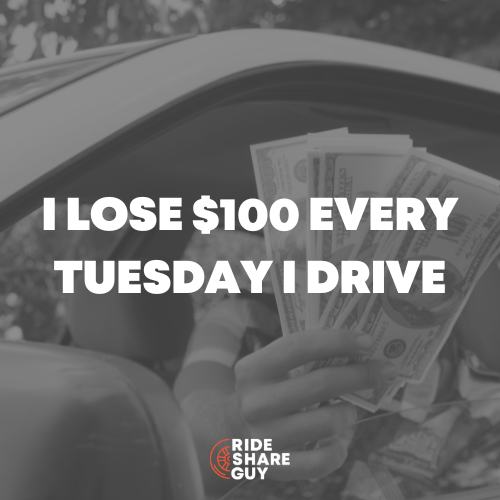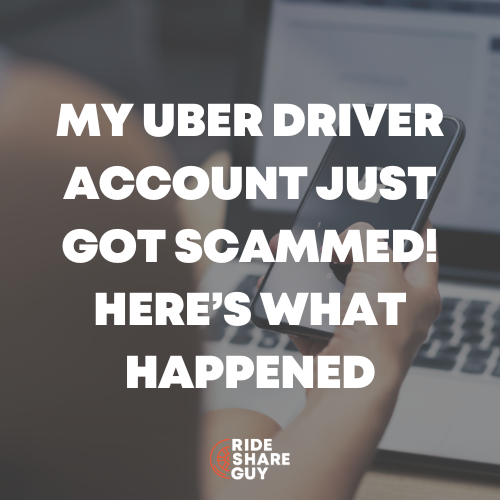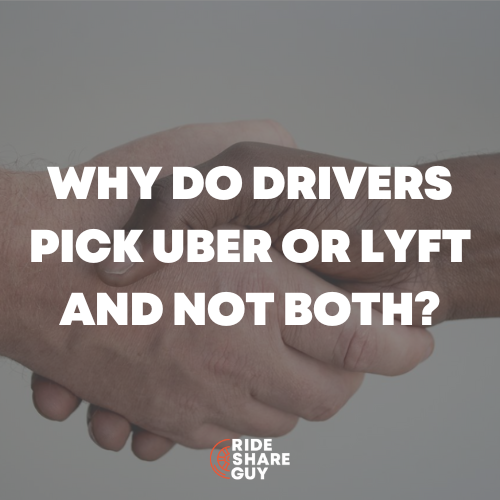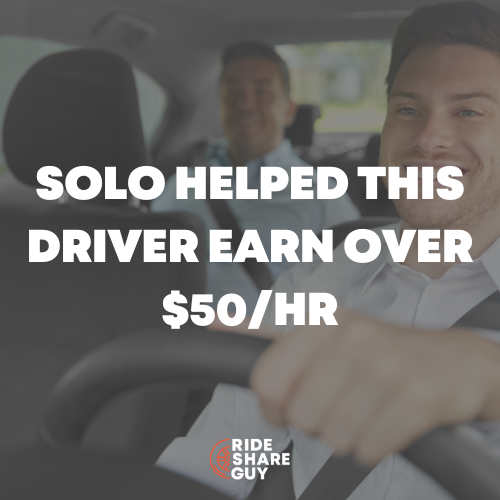Over the years, there has been plenty of scrutiny over how Uber and Lyft treat their drivers. There have been countless Uber and Lyft lawsuits with the aim of getting these companies to treat their drivers better.
In some cases, there have been advocates to stand up for the drivers and their rights. One of the biggest advocates we’ve noticed is the city of Seattle.
In recent years, Seattle has done more for drivers’ rights than any other city, state or company from what we’ve seen. Also, not just rideshare drivers, but delivery drivers and other gig workers. So today, we wanted to highlight and feature everything that the city is doing to help gig workers.
Seattle as Uber Driver Advocates
Seattle has stood out as a gig worker advocate in seven major ways, which we’ll break down below. They include:
- Driver minimum wage
- Driver Resolution Center (Challenge unfair deactivations)
- Paid sick leave
- Gig worker settlements
- Wage studies
- Driver unionization
- Seattle-based companies helping gig workers
Seattle Implements a Minimum Wage for Drivers
Seattle may not have been the first to implement a true minimum wage compensation for drivers, but that doesn’t decrease the significance of it. In 2020, the Minimum Compensation Ordinance No. 125977 was passed by the Seattle City Council and it was implemented in 2021.
The ordinance stipulates that rideshare companies are to pay drivers at least the Seattle hourly minimum wage ($16.69/hr) plus reasonable expenses. This was implemented to ensure all drivers (full-time or part-time) are fairly compensated for the time they spend on-app and on the road actively driving.
According to a GeekWire article written by Taylor Soper, “The new law requires transportation network companies (TNCs) to pay drivers at least $0.56 per minute when there is a passenger in the vehicle as well as a per-mile rate to cover expenses. The city says that standard will ensure drivers earn at least Seattle’s minimum wage, assuming they spend about 50% of their time waiting for rides or driving to pick up passengers.”
So, the minimum wage compensation for drivers takes into account that there will be some downtime while they are on their app as well as the times they will have passengers in their vehicle.
Seattle drivers shared on our Facebook Page that they’ve seen an increase in per mile and per minute pay, which they’ve appreciated.

If you compare this compensation plan to Prop 22 in California, this version from Seattle seems to take more realistic expectations under consideration. For Prop 22, drivers in California are guaranteed a minimum wage at a rate of 120% of the minimum wage for the city in which they are driving, but only for what they call “engaged” time—the time from acceptance to completing a ride.
According to Cynthia Santana, Communications Manager for the Seattle Office of Labor Standards, Seattle wanted to focus on pay and deactivations because they were the highest priorities based on driver feedback:
“In Seattle, drivers have consistently identified better pay and protections from unwarranted deactivations as top issues. That is why our policies focus on those two areas.
For minimum compensation, the policy requires that drivers be paid for all of their working time—including time without a passenger—and reimbursed for their expenses.
Seattle’s Deactivation Rights Ordinance prohibits unwarranted deactivations while providing a forum and funding for representation for drivers to challenge those deactivations. As drivers continue to navigate the uncertainties of the pandemic, these policies will help ensure they can earn a living at a decent wage.”
Driver Resolution Center / Driver Deactivation Rights Ordinance
Another ordinance the Seattle City Council enacted was the Driver Deactivation Rights Ordinance. It went into effect on July 1, 2021, and it gives drivers the ability to challenge unfair deactivations from gig economy platforms such as Uber and Lyft.
Part of this ordinance opened up what they call a Driver Resolution Center, where drivers can be provided with education, outreach, and fee-free representation for deactivation disputes.
How are these services provided for free? Through the Drivers Union, funded by the City of Seattle. On their website, Drivers Union provides a form that drivers can fill out if they believe they’ve been unfairly deactivated.
One thing to note, is that this service is only available for deactivations that happen after the ordinance was implemented on July 1, 2021:
“Under Seattle law, appeal rights are limited to deactivations that occur after July 1, 2021. Appeals must be filed within 60 days of notice of deactivation. If your deactivation does not meet these qualifications, Drivers Union will still consult with you about your options, although your appeal rights may be limited.”
Unfair deactivation is a common complaint among drivers. We hear it all the time: “I got deactivated and I have no idea why!” or drivers are accused of things that they are not guilty of but deactivated because of this anyway.
To have a space where drivers can fight back and give themselves a voice for unfair deactivations is huge and largely unheard of. It’s fairly difficult to fight unfair deactivations directly because Uber, Lyft and other app-based companies do not give you an option for giving your side of the story. You receive a message saying you’ve been deactivated and that’s about it.
Aside from this Driver Resolution Center, there are legal options drivers can take for fighting unfair deactivation. Bryant with LegalRideshare has experience with deactivations and other legal rights of rideshare drivers. His firm is constantly working with and for rideshare drivers to make sure you’re getting the support that you need.
Learn more about LegalRideshare and what Bryant can do for you with this podcast Harry hosted with Bryant: RSG168: Fighting Unfair Deactivations with LegalRideshare.
Paid Sick Leave
Seattle City Council passed the Gig Worker Paid Sick and Safe Time (PSST) Ordinance in 2020, as well. This “driver perk” is currently being offered for a limited time only due to the COVID-19 pandemic but it is fairly groundbreaking. This ordinance, however, applies to both rideshare and food delivery workers.
The ordinance reads:
“Starting October 1, 2019, gig workers earn one day of PSST for every 30 calendar days worked in whole or in part in Seattle. Covered entities have the option to calculate retroactively accrued PSST (October 1, 2019 to effective date) by this standard accrual or by substituting for 5 days of PSST.”
So, when does it end? It was written that the PSST would end 180 days after the mayor’s civil emergency ends in relation to the pandemic. But for now, Seattle is the only city that requires companies like Uber and Lyft to pay for sick leave for their gig economy workers.
Settlements
More recently, the food delivery platform Postmates (now owned by Uber) was made to pay $1 million to Seattle-area delivery drivers due to violations against the city’s paid sick leave policies for gig workers.
Postmates wasn’t the only platform violating this policy. Uber did as well and settled on a $3.4 million payout for sick leave and back pay.
In a Geek Wire article written by Mike Lewis, Joshua Welter, the spokesperson for Teamsters Local 117 (a Seattle driver union) was quoted as saying, “This is an amazing victory for workers. Seattle has been on the cutting edge work worker protections.”
Wage Studies
Seattle, while determining what the minimum wage compensation should look like, paid for a wage study to be done to determine how much (or how little) drivers were making in Seattle. So we have some robust earnings data for drivers in the city of Seattle.
The study, conducted by Michael Reich and James Parrott, determined that the average driver in Seattle nets $9.73 an hour after expenses. This rate is well under the minimum wage, which spurred the minimum wage standard set by the city council.
There was an alternative study, paid for by Uber and Lyft, to challenge the study done for the city council. This study, conducted by Platform Driving in Seattle out of Cornell University, determined that Seattle-area drivers were earning $23.25 an hour after expenses. Harry had a good discussion with the author of that study on the podcast if you’re interested.
Each study made different assumptions about drivers, driving time, expenses, and more, which led to the wide disparity between earnings. Take a listen to the podcast Harry conducted in order to learn more about these differences and assumptions.
All told, the Seattle City Council based portions of the compensation ordinance on the Reich and Parrott study and their findings, ultimately giving drivers a boost in pay, or at least the chance for one if they were in the percentage of drivers earning less than minimum wage.
Driver Union
Back in 2015, the Seattle City Council passed a law allowing Uber and Lyft drivers to unionize. Of course, Uber and Lyft did not like this and tried to fight it in court. Spoiler alert… the platforms lost.
Part of the push Uber tried for was publishing 18 podcasts geared toward why drivers should not join a union. Despite Uber and Lyft’s efforts, unions are allowed in Seattle for app-based workers.
One such union is Drivers Union, which helps drivers with deactivation issues, unemployment support (during the pandemic), for-hire permit renewal issues and more.
We reached out to the Drivers Union in Seattle to ask about the types of drivers they’ve helped so far – and President Peter Kuel stated they’re just getting started:
“For the first time, drivers have rights and free legal support to challenge unwarranted deactivation. We’ve helped hundreds of drivers who have been deactivated after false customer complaints, background check discrepancies, simple documentation issues, and myriad other reasons.
These issues, often minor, are life and death for drivers trying to support their families. Many drivers are already back to work thanks to Drivers Union and the Deactivation Rights Ordinance, and we’re just getting started.”
Innovative Startups – Solo
In addition to the driver advocacy throughout Seattle, Seattle is also host to innovative companies designed to help drivers, like Solo. Solo is a Seattle-based startup that helps drivers maximize their earning potential and offers earning guarantees. They are working to expand beyond Seattle, so if you’re not driving in the Seattle area yet, you can sign up for their e-mail list to be notified when they expand nationwide.
Harry is a big fan of this company’s mission and the team behind Solo and recently came on as an advisor and investor for the company.
We reached out to CEO and Cofounder of Solo, Bryce Bennett, and asked him how Solo helps drivers earn more by helping them determine the best times to drive based on data:
“At Solo, we’re excited to put better data and tools in the hands of drivers, shoppers, couriers and others so they can maintain their flexibility, while also knowing when, where, and what job to work. We use real data from the community to provide city-level pay and performance benchmarks, including hour-by-hour earnings predictions that we guarantee – making up the difference if you earn less.
Using these predictions, we’re seeing workers in Seattle earn up to 47% more than they were previously.”
Learn more about Solo by watching our video here: Solo is Offering Uber and Lyft Drivers Guaranteed Earnings!
Final Thoughts
No city or state is perfect, just like no company is perfect. But Seattle is at least attempting to do what they feel is best for their drivers.
Obviously, not all drivers will agree with the methods or the outcomes, but trying is better than ignoring, in my opinion.
Are you a rideshare or delivery driver in Seattle? Have these initiatives helped your earnings, or not made much of a difference? Let us know in the comments below!
-Paula Gibbins @ RSG with additional reporting from Melissa Berry




